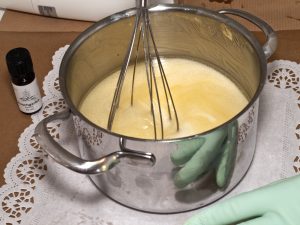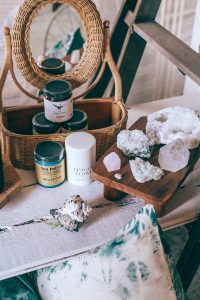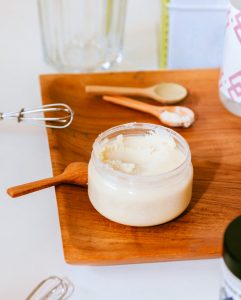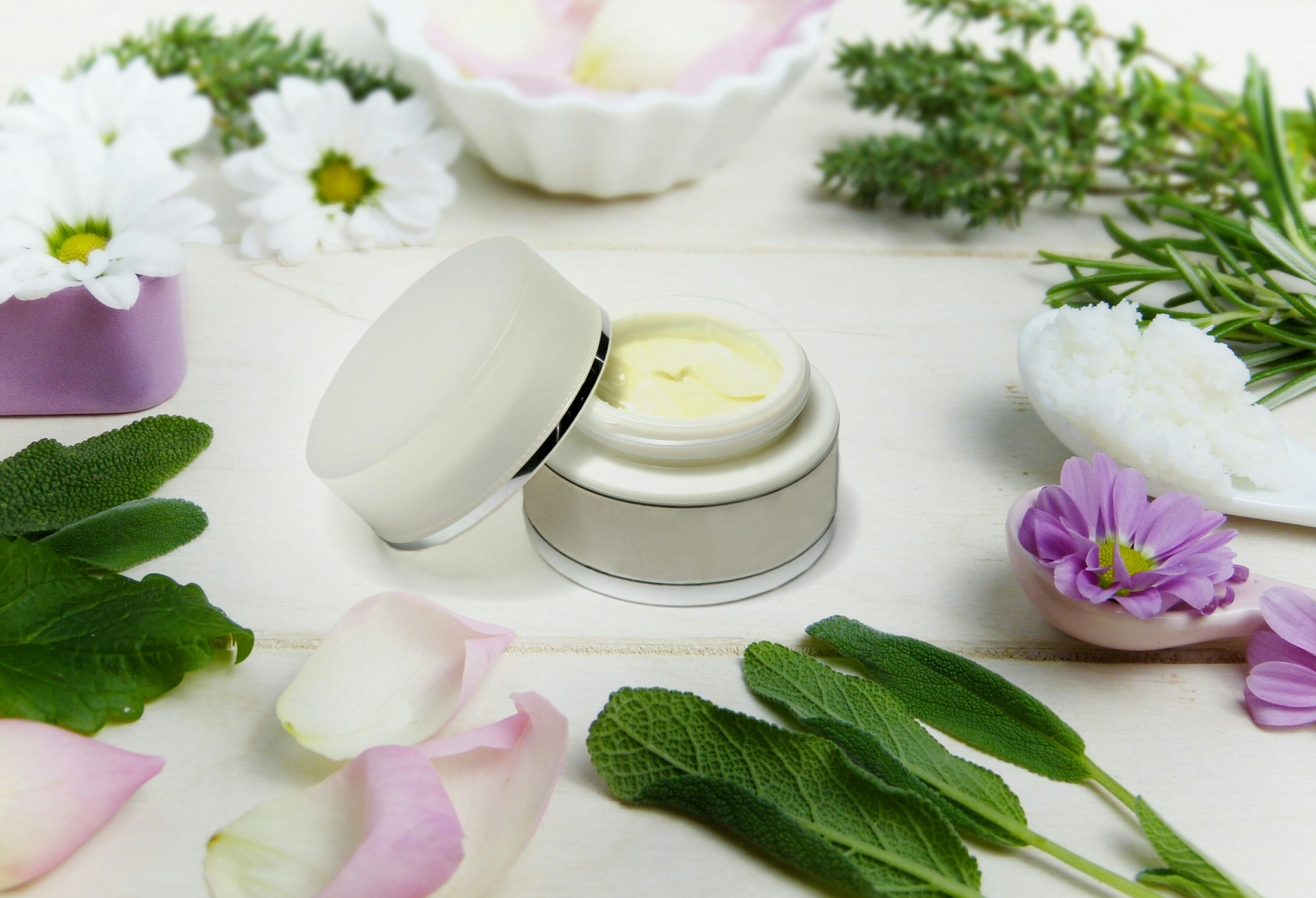Do you want to know does shea butter clog pores because you have oily skin and fear it can worsen your condition?
Shea butter is undoubtedly one of the heavily-marketed luxurious beauty products. But is it good for skin? Rather, is it good for your skin?
Skincare is sensitive and we need to be extremely careful with what we put on our bodies.
Skincare differs from person to person because the way your skin reacts depends on your skin type.
With the fast-paced life we go through nowadays, there’s no time to take care of skin. But not following a good skin regimen can make you look older.
Shea butter helps keep skin moisturized for a long period. Here, we will discuss does shea butter clog pores to help you understand how to use this product at best.
Table of Contents
What is shea butter?
If this is new to you, then let me give you a quick introduction. Shea butter is the fat that is extracted from shea nuts. It is mostly ivory or off-white that has a creamy, buttery consistency. Also, most shea butter available across the globe comes from West African shea trees.
Research shows that shea butter’s highly concentrated vitamins and fatty acids make it an ideal ingredient for softer-looking skin.
Due to its healing and anti-inflammatory properties, shea butter helps in soothing, conditioning, and toning the face and body.
However, one of the significant concerns with skin care is the acne we all wish we never get.
If you have oily skin, applying shea butter might make you prone to acne. It is also the reason why it can clog your pore.
Let us discuss this in-depth.

Does shea butter clog pores
The most straightforward answer to that is no! Shea butter cannot clog pores if it is of premium quality and the extraction process is correct.
The natural extracts in the shea butter are vitamins A, E, and F. These ingredients act as antioxidants to help your skin stabilize its cell membranes.
To some people shea butter works towards healing acne and has been providing excellent results.
Shea butter fractionation
This shea butter extraction is done by fractionation process. Fractionation separates the waxes and fats from shea butter. It is then mixed with natural oils, creating the moisturizer.
Shea butter’s influence across Western Africa has prevailed across centuries. The people believed it to use it as a skin protector from harsh surroundings.
The healing and moisturizing properties in the modern era make it a fantastic skin care product. Hence it would help if you used it in your skincare regime.
You have the assurance that shea butter will not clog your pores. However, it is important to use the right product in the process.
Just don’t get a local quality shea butter that you are not sure of using. It might react differently on your skin. Hence, whenever you start a new skincare regime, ensure you get a premium quality product that many people have used.
If you need more clarification about using natural shea butter, there are many other options. You can choose from other skincare products with a high percentage of shea butter.
Types of shea butter
Shea butter mostly comes in two forms, and both types are used for hair and skin. You need to figure out which type suits you the best.
Unrefined
Raw shea butter has no chemical or heating process. It preserves all the natural nutrients and vitamins shea butter has. But it is a short shelf life, so you need to use it quickly. Also, the scent is much stronger and has more concentrated nutrients.
According to research, this type is considered perfect for your skin regime because it’s packed with all-natural substances. The strong scent of shea butter will help you achieve a relaxed frame of mind. The creamy texture is like butter that helps get rid of patchy rough skin. You may also choose to mix it up with your favorite virgin oils that suit you the best.
Refined
The refined version of shea butter has a longer timeline, which you can use over time. You can use it at best during winters and colder months. Unlike raw shea butter, this type is much smoother and melts down your skin as you apply. You can easily use it as a hair conditioner and a moisturizer.
The refined butter has a very light smell which comes in different scents like cocoa or aloe vera. You get a lot of different options to choose from, which can last for a more extended period.
You need to choose the right match for your skin, and you are good to go!
Does African shea butter clog pores
Since shea butter is highly extracted in Western Africa, the most natural ones to use are the African shea.
African shea is a plant-based natural oil used for ages to protect and moisturize the skin.
Shea butter has been said to be non-comedogenic, which means this will not aid in clogging your pores. It will help eradicate the pores by regulating sebum production in the skin.
African butter is very high in essential vitamins and fatty acids, which work best for your sensitive and dry skin. So, if you are looking for a natural moisturizer without clogging pores, African shea is a great option to choose from.

Correct application of shea butter
Are you still wondering how to use shea butter, whether to use raw or refined? Well, to be honest, it is easier to use the readily available only or the store. Finding the unadulterated, raw one is difficult. Hence it is better to get one available at the retail stores or purchase it online.
Nighttime routine
The best way to apply shea butter is during the night, right before you sleep. You can also apply it along with your favorite face cream, which will initially help you get used to it.
However, could you not use it before your makeup? Since it has so much moisture and a creamy texture, applying makeup might not make it stay.
Shea butter face mask
Do you know shea butter face masks are also available in the market and can be used to pamper yourself on a lazy day? You need to cleanse your face and put the mask on. It is that simple.
However, if you want to make it yourself, add some honey with your favorite essential oil with shea butter, and it is done. Mix it all, dip your mask, and there you go!
Facial masks are great, but the poor-quality ones might irritate you. So be careful with that.
Just like you need good fat in your daily diet, you need fat for your skin. So many kinds of body butter are available, but shea butter has its reputation and benefits for the skin. Hence including it in your daily regime can get you great results.
Is shea butter comedogenic
Though the answer to the question ‘does shea butter clog pores’ is a no, let’s get into the science behind it.
Comedogenicity means the power of a substance to cause blackheads or pimples on your face or skin.
Acne occurs only when hair follicles clog into your face due to oil, dirt, or other impurities. Now, if you have an acne-prone skin type, you must be sensitive about what product you use on your skin.
Non-comedogenic means just the opposite. The product, which is mentioned as non-comedogenic, will not clog your pores.
This is why it is essential to know the ingredients of everything you decide to put on your face.
So how do you measure the comedogenicity in a product?
There is a comedogenic scale that helps to measure how likely the product can clog your pores. Have a look at the below scale for a better understanding:
- The scale ranges between 0-5
- 0 Signifies that the product doesn’t clog your pores
- 1 has a low chance of clogging pores
- 2 has a moderately low level of clogging pores
- 3 has a moderate level of clogging pores
- 4 has a high level of possibility of clogging pores
- 5 has the highest level of clogging pores
Now, where does shea butter stand on the above scale? Let’s figure it out in the below section.

Shea butter comedogenic rating
In the above explanation, you are now clear about what comedogenic is and how the scale works, but where does shea butter stand in the comedogenic scale? Does shea butter clog your pores?
Well, let’s see if the shea butter comedogenic rating is good enough.
To end the tension, the good news is shea butter has a rating of 0 on the scale which means it will not clog your pores!
But as you know, all human skin is different, and the comedogenicity scale was developed experimenting with rats. The only way to know how it will work for you is by testing a product.
All human skin is different, and it reacts differently. Hence, it is essential to see what suits your suits and what doesn’t.
Also, since shea butter is a thick creamy product, you must be careful if you have oily skin. It is an excellent moisturizer but may not be a great option for oily skin.
Why add shea butter to your skincare regime
Apart from being a moisturizer, you can use shea butter as an anti-aging cream. It has a lot of properties that make the skin look smoother and healthier:
1. Using it as an anti-allergen
Shea butter is one of the best products to fulfill your skin’s moisturizing needs. It is also considered to be safe even if you have sensitive skin. Hence you need not worry about any allergic reaction in the case of shea butter.
2. Healing and anti-inflammatory properties
Shea butter extensively heals your skin because of its anti-inflammation properties. If you have ever had swelling and redness on your body or face, try using shea butter.
Shea butter activates cytokines that are present in the skin, which reduces inflammation. It is also a preventative measure for eczema and a great moisturizer to be used in winter.
Antioxidant
Shea butter has the benefits of multiple nutrients, which are used as an antioxidant. The vitamins E and A helps to protect the skin from the environment’s harsh radicals, making your skin healthy and youthful.
Prevents Acne
Shea butter has a lot of benefits, and one of them is that it prevents acne. Now, the answer to the question, does shea butter clog pores? Of course not! Instead, it can help prevent acne breakouts and clogging pores.
This product is filled with a good number of fatty acids, which helps in preventing acne. Hence, it would help if you were sure to use shea butter effectively.
Great Moisturiser
When it comes to moisturizers, oleic and linoleic acids easily absorb in the skin. Shea butter restores the natural lipids of the skin, helping to build moisture that penetrates within the skin, resulting in a healthy glow.

Final Thoughts
Can shea butter clog pores? Though it has an excellent rating under the comedogenic scale, you still need to be careful and understand your skin. Shea butter has proven to be one of the best moisturizers for the face and body, but it again depends on person to person.
If you are considering shea butter for the first time, it is better to try a mild version along with your face creams and then slowly include it exclusively.
I hope this article clears all your doubts about shea butter and chooses your skincare regime accordingly.

